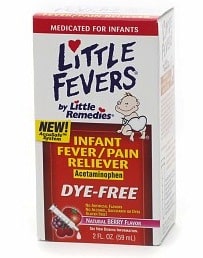A new, less concentrated form of acetaminophen for infants and children will be hitting the shelves soon, and the FDA is warning parents and other caregivers to check the dosage information before administering this popular pain reliever.

Health officials and the FDA are concerned that parents may buy the less concentrated form might become accustomed to giving a certain amount of medication, but that when it runs out, they might end up purchasing the more concentrated form, which can have serious adverse effects, including liver failure and death.
To help prevent this from happening, Carol Holquist, the director of the FDA’s Devision of Medical Error Prevention Analysis, urges parents and caregivers to “be very careful when you’re giving your infant acetaminophen.”
But the FDA also says that the new medication concentration shouldn’t scare parents into underdosing their children either. Not giving enough medication can take away from the efficacy of the medication. As a result, the child may not be able to fight their fever as well.
The FDA has supplied some additional tips that will help parents with appropriate dosage:
- Don’t be fooled by medications that are labeled as “new.” This does not mean that the medication has a lower concentration.
- When administering a medication, use only the measuring device supplied with the medication.
- Read the Drug Facts package label carefully to ensure proper dosage.
- Check with your child’s pediatrician before giving a new medication to your child.
Related Articles:
- Mother-Toddler Bond Could Affect Obesity Odds Later in Life
- Have You Tried Soap Nuts?
- Baby Formula Tied to Infant’s Death Tests Safe Company Says






